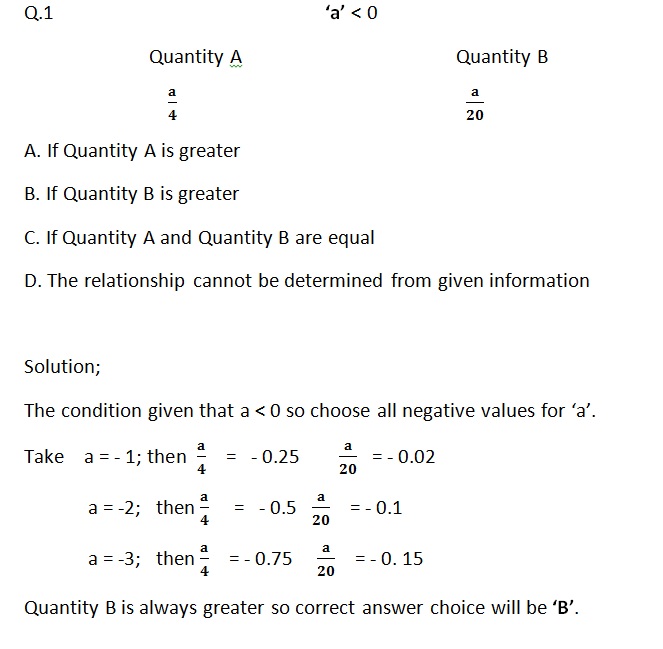Integer Review: Fundamentals of Integers , Rules for Multiplication , Rules for divisibility, Division Terminology, Even & Odd Integer, Rules about even & odd integer, Prime Number, Prime Factorization , Distinct Prime Number, LCM & HCF, Composite Numbers , Consecutive Integers
Class Questions : Exercise 1 Exercise 2 Exercise 3 Exercise 4 Exercise 5
Practice Questions : Solutions
____________________________________________________________________________
Q.2 If ‘a’ and ‘b’ are prime numbers then which number from the following cannot be the addition of a and b?
A. 12
B. 19
C. 29
D. 18
E. 24
Solution;
Suppose, If a = 7 and b = 5 then a + b = 12 eliminate A.
If a= 17, b = 2 then a + b = 19, eliminate B
If a= 11, b = 7 then a + b = 18, eliminate D
If a = 19 and b =5 then a + b = 24, eliminate E
In any case we cannot get the value ‘29’ after adding two prime integers. So correct answer is ‘C’.
Integer Review: Fundamentals of Integers , Rules for Multiplication , Rules for divisibility, Division Terminology, Even & Odd Integer, Rules about even & odd integer, Prime Number, Prime Factorization , Distinct Prime Number, LCM & HCF, Composite Numbers , Consecutive Integers
Class Questions : Exercise 1 Exercise 2 Exercise 3 Exercise 4 Exercise 5
